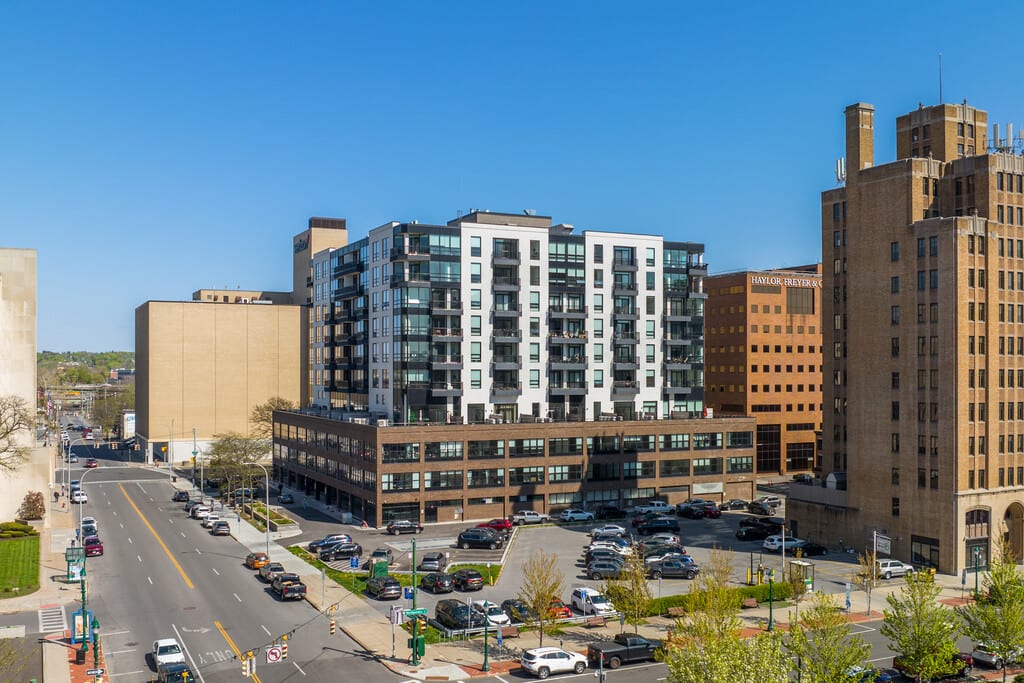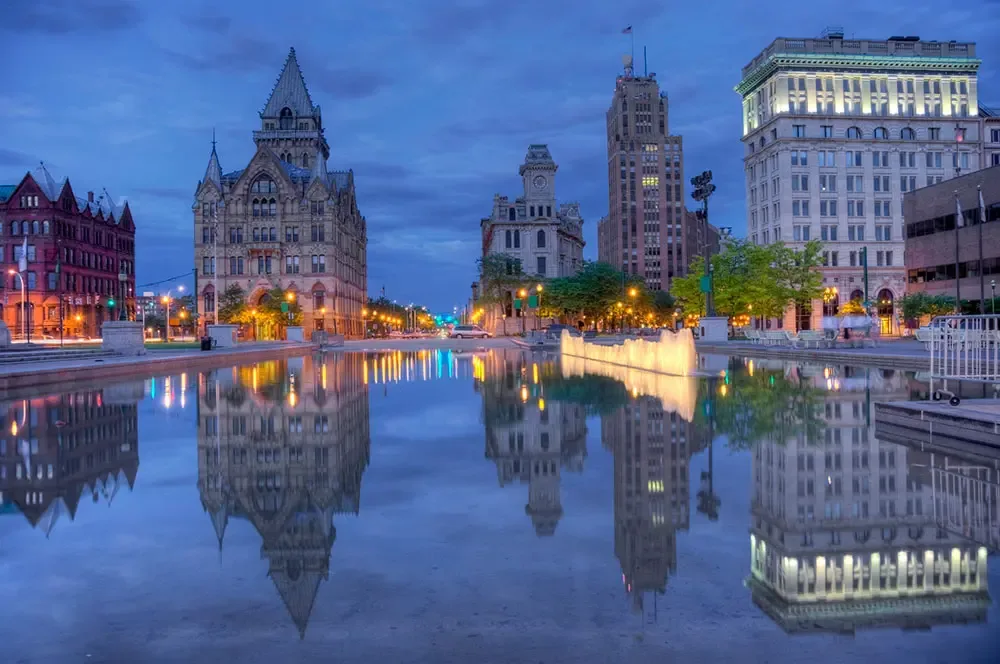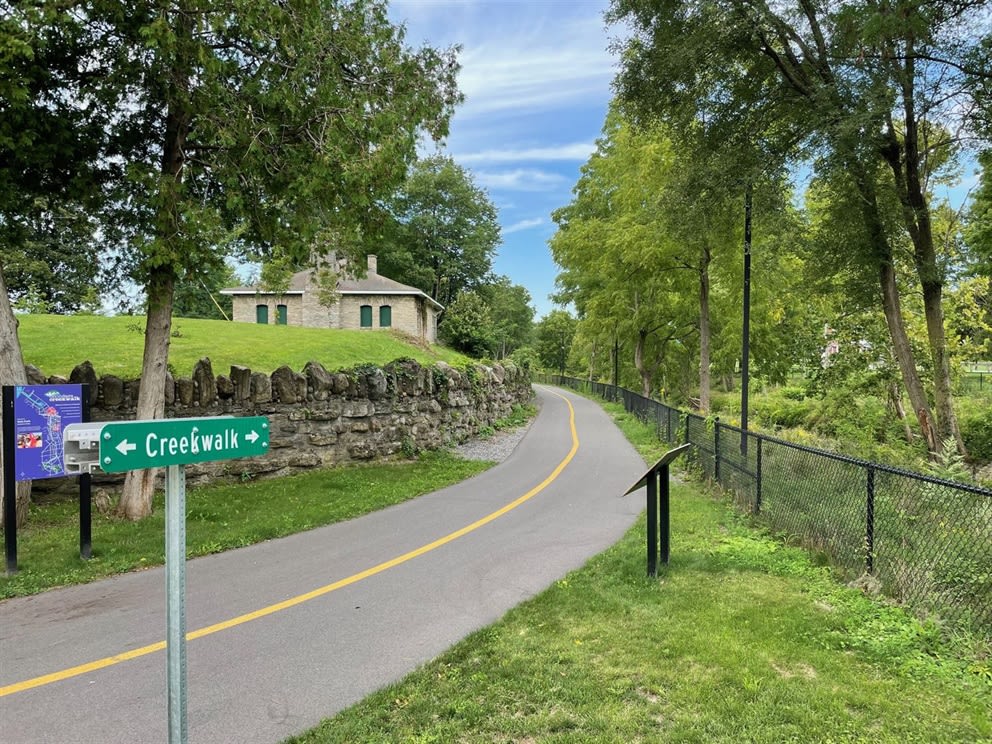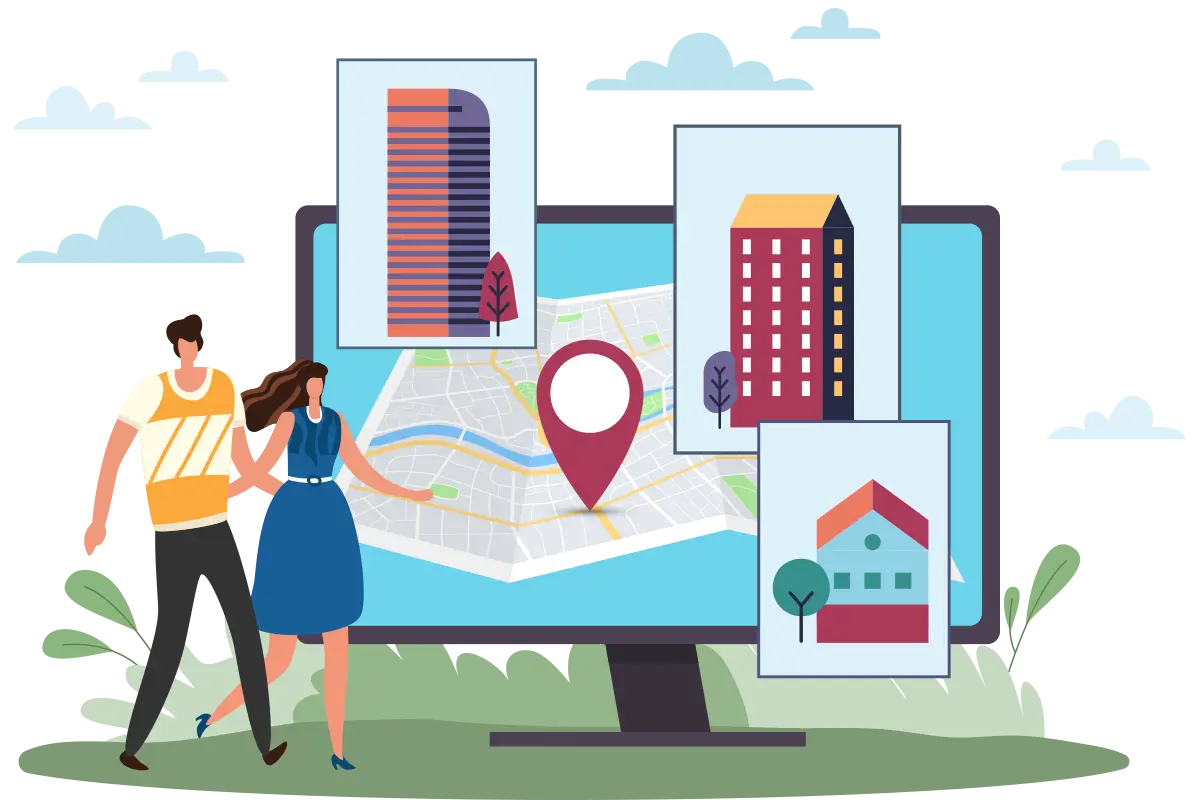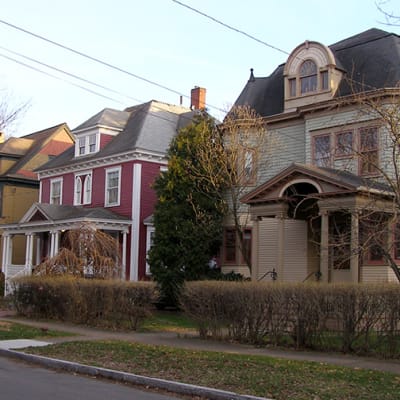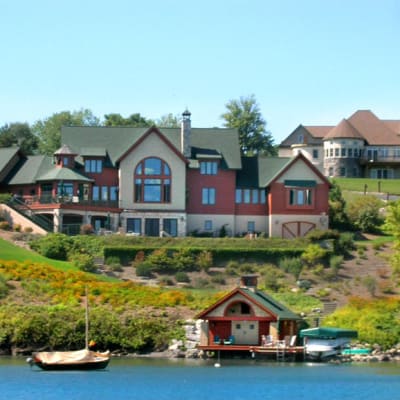Living in Syracuse, New York
The Salt City

LookyLOO Reviews of Syracuse
You’ll Love the Cost of Living
Syracuse has seen its fair share of tough breaks. In 1855, the establishment of the Erie Canal unleashed a river of possibilities for the small city. Trade became exponentially easier, and Syracuse earned its nickname “The Salt City.” It’s hard to believe that at one time, all salt consumed in the U.S. originated here, but it’s true. This monopoly was short-lived, however. The invention of the refrigerator in 1913 ultimately decimated the salt industry, leaving Syracuse in a precarious position economically. Other industries came to town but left again by the 1960s or so. Massive layoffs led to mass migration to other cities for work, dwindling the city’s population to the rough 140,000 it is today – almost 100,000 fewer than it was in its prime.
Why are we telling you this? Because, if it's fair to say, yesterday’s sorrows are today’s possibilities. Today the city is experiencing an uptick in population size and economic growth, buoyed in part by the city’s namesake university, Syracuse University. The city’s difficult economic past translates to a current cost of living that is markedly more affordable than other U.S. cities of its size. Somewhat mitigated by the area’s higher taxes and utility costs, you can live a relatively comfortable life on a lower income than you’d think coming from other parts of the state or country.
Side note: on average, the city gets about 130 inches per year. You may not know this, but snow = potholes. When driving within the city or on major freeways like 81 or 695, expect to experience that gut-wrenching sound of a pothole taking a year or two off your tire. It’s a well-known issue and the government has had plans “in motion” for years to fix it, but unfortunately, many residents are still having to white knuckle their steering wheels on the way to the grocery store.

Lifestyle in Syracuse
Go Team!
If you’ve heard of Syracuse, we bet it's because of the city’s namesake university. More than 22,000 students call the Syracuse University campus home each year. On the weekends, you can expect to see them enjoying “the ‘case’s” surprisingly good (for its size) scene of bars, restaurants, and entertainment venues. But the real excitement in Syracuse is the sports culture.
Syracuse University is most celebrated for its football, basketball, and lacrosse teams, known as the Syracuse Orange (yes, we love that their mascot is an orange too). The school’s athletics in addition to the city’s other DI college, professional baseball team, and professional hockey team means there’s excitement for sports fans year-round.
If team sports aren’t your thing, maybe you’ll love the nightlife and events that Syracuse provides. Locals like to gather at some of the historic squares, like the red-bricked Armory Square, to drink, enjoy live music, and get a bite to eat. You might be surprised to find two nationally recognized food spots in a small city like Syracuse, but they’re here. First, chomp down on the best burger in New York State at Ale ‘n’ Angus. Next, head over to Pastabilities and order the infamous “wicky-wicky chicken riggies.” The dish is native to nearby Utica, and frankly, you haven’t experienced Syracuse until you’ve tried it.
When the snow melts and the overcast winter clears, residents can finally trade in their vitamin D supplements for the real thing. Within a couple of hours, you can get to some famous outdoorsy places like the Great Lakes, Finger Lakes, Adirondacks, Thousand Islands, Catskills, and Poconos. As for other cities, you’ve got Rochester 1.5 hours away, Albany 2.5 hours away, and NYC 4.5 hours away with good traffic.
We highly recommend visiting Syracuse and staying in the community in a VRBO rather than a hotel to get a feel for living among the locals. You can receive discounted fares on travel via our partnership with Expedia as well.

Schools in Syracuse
A Passing Grade
Technically, a “C+” is a passing grade, right? Unfortunately, when your kid comes home with one on their report card, you don’t see it that way. The same can be said when families moving to Syracuse see SCSD’s “C+” rating on Niche.com. The school district has lower test scores and graduation rates than families would like, but these data points don’t paint the full picture. First, there are a handful of schools that stand out more positively in the city’s mixed bag of public offerings. They include Nottingham High School, Corcoran High School and Syracuse Central. Next, many families choose to send their kids to SCSD schools with the philosophy that parental involvement impacts a child’s academic success more than a school’s ratings.
If you want to send your child to public school and have the flexibility to live beyond city limits, you could consider the better-regarded districts of Skaneateles, East Syracuse Minoa, West Hill, West Genesee, Jamesville-Dewitt and Fayetteville-Manlius. Don’t make that decision though without first considering that all graduates of Syracuse City School District have the unique opportunity to apply for college scholarships through the “Say Yes Syracuse” program.
If you have the means, there are several highly rated private schools in the area. You can look at Manlius Pebble Hill School (PK-12), or one of the many religiously-oriented offerings like Christian Brothers Academy (7-12) or Bishop Ludden Junior/Senior High School (7-12).

Why You Should Move Here Now
Brighter Days Ahead
After decades of high unemployment and economic stagnation, Syracuse is seeing growth in the right direction. Its unbelievably good cost of living might just be the right opportunity for the right person or family. Like with any move, it’s important to consider where a city is going as much, if not more than, where it’s been.

Reviews of Syracuse from Locals
baconring
9mo ago
🦉🦉🦉🦉
I don't live directly next to Syracuse, I love 30 minutes north but I am constantly there for work. It's not bad really at all. There's tons of outdoor activities, within 30 minutes of the city. Good food. Mountains am hour away. The finger lakes wine region which is right up there with their quality with Europe and California. Lake Ontario, science museums, live music constantly. And the amount of upgrading the city continues all the time. A 200 million dollar upgrade of route 81 is in the process right now that will create a better city. The state fair is massive. One of the biggest in the u.s. there's something for everyone. It's not super expensive. We also have a huge microchip factory coming. The whole rust belt in ny is about to not be the rust belt. It's about to be shined back to a beautiful sheen. Have loved her my 50 years of life and continue to find new things to do. Winters aren't that bad anymore and I love in the snow belt. I shoveled my driveway 4 time's last winter.
For more reviews of what living in Syracuse is like from locals, check out The Reviews.
Agents in Syracuse
Want to give Syracuse a shot?
Use our friends at VRBO and Expedia to help get you going!

Living in Syracuse
Neighborhoods in Syracuse
View All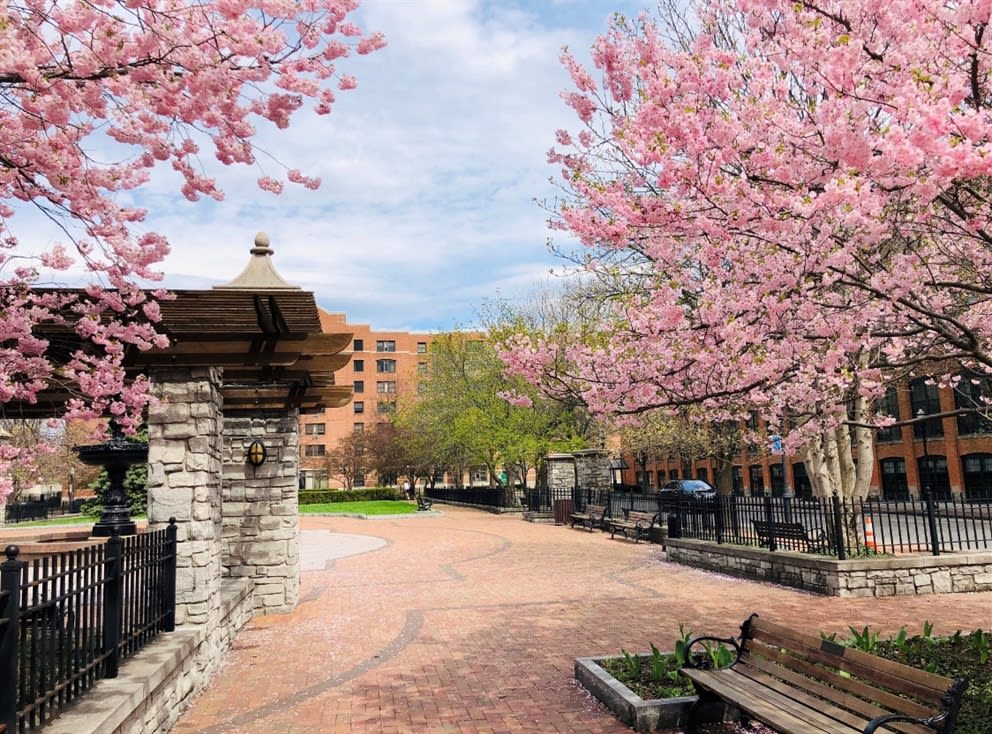
Franklin Square (Downtown Syracuse)
Young Professionals, DINKs
Franklin Square – like other squares in downtown Syracuse – provides residents easy access to quality amenities set before the backdrop of charming and historic brick buildings. The area hosts businesses, apartments, coffee shops, restaurants, and Franklin Square Park – a popular site for wedding photographers because of its signature fountain.
Within easy walking distance are a climbing gym, schools, and St. Joseph’s Hospital. The Onondaga Creekwalk trail winds through the neighborhood, connecting residents to the Destiny USA mall (the 6th largest mall in the nation) as well as downtown’s array of restaurants, bars, and shops.
On their way to work, the typical Franklin Square resident might grab a cup of coffee from Freedom of Espresso within the O.M. Edwards building, a twentieth-century manufacturing plant that was added to the National Register of Historic Places in 2001. If this sounds like your vibe, also check out apartments on or near Hanover Square, Armory Square, Clinton Square, and Columbus Circle. One-bedroom apartments in these areas are typically between $1,600 and $3,000.
